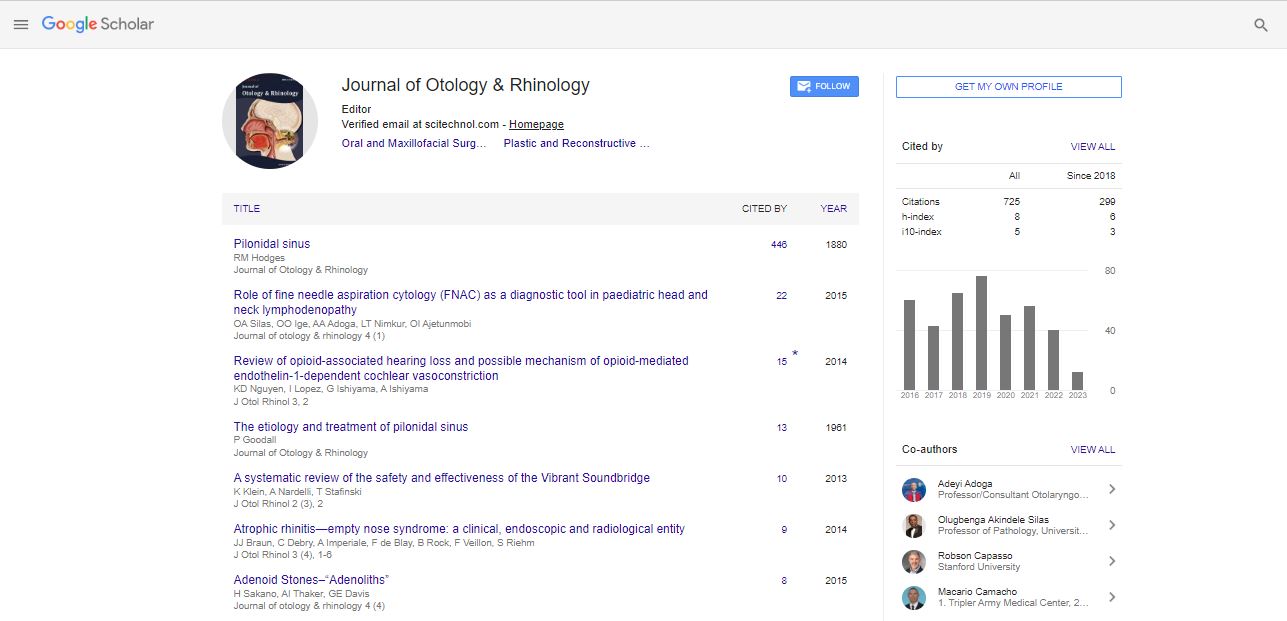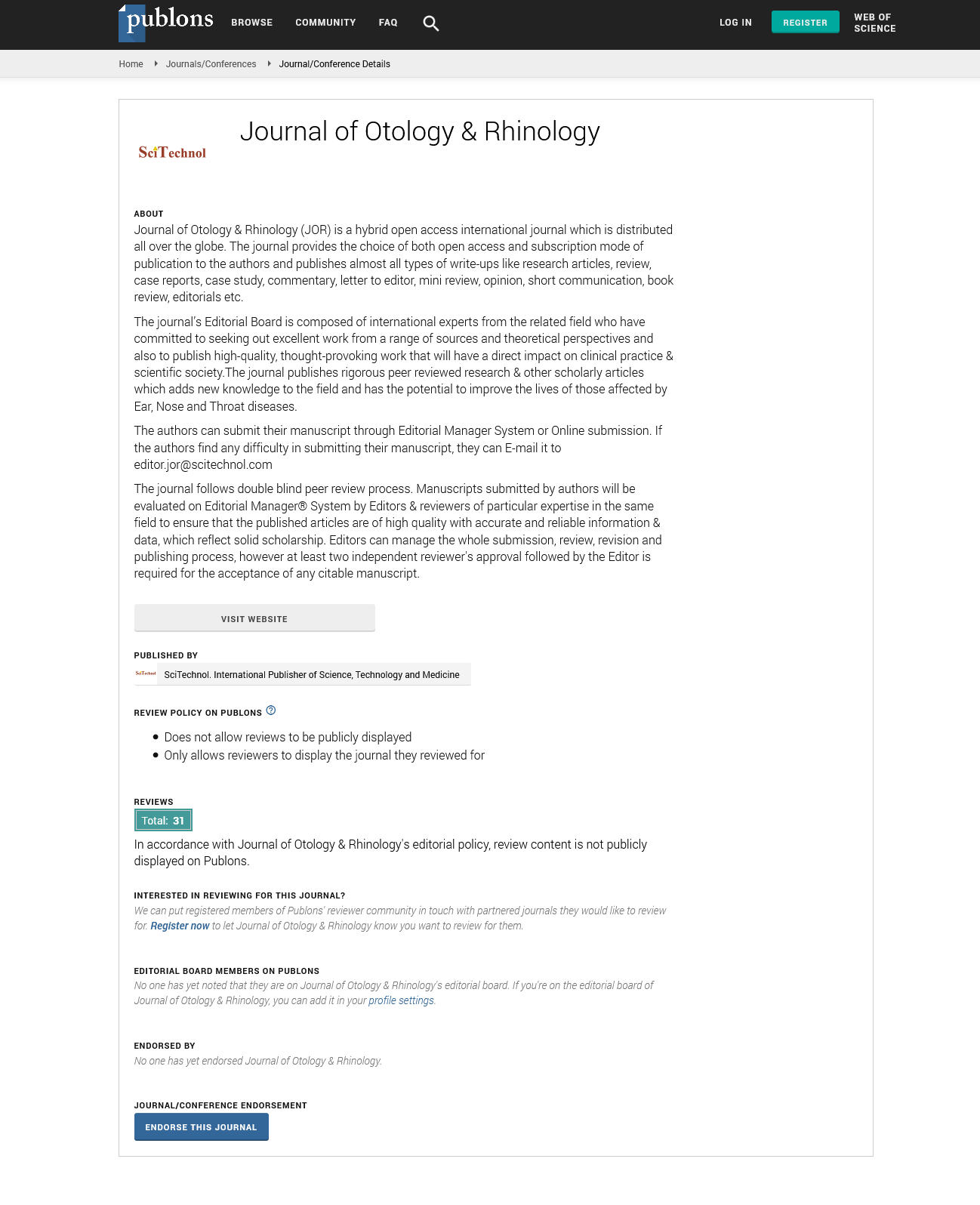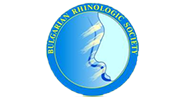Temporal bone meningo-encephalic-herniation: Etiological categorization and surgical strategy
Golda Grinblat
Gruppo Otologico, Italy
: J Otol Rhinol
Abstract
Objective: To study the clinical presentation, intraoperative findings and surgical management in Meningo-Encephalic-Herniation (MEH) based on the etiology. Study design: A retrospective clinical study. Settings: A Quaternary Referral Otology and Skull Base Centre. Patients & Methods: The inclusion criteria were intra-operatively verified MEH in patients with a minimum follow-up of 12 months which yielded 262 operated ears. The data were extracted regarding demographics, laterality, clinical presentation, past surgeries, contralateral-ear condition, intraoperative findings, complications, recurrences, revision-surgeries, audiometric-data and follow-up. Results: The mean age at surgery was 49.7 years with the involvement of right-ear in 53.8% of cases. Lesions were categorized based on the etiology as chronic-otitis-media with/without cholesteatoma-MEH (COM/CHOL-MEH)-47.7%, iatrogenic-MEHs-20.9%, traumatic-MEHs -8% and spontaneous-MEHs-23.3%. At presentation, hearing loss (100% and 98.2%) and otorrhea (65.6% and 49.1%) were predominant in COM/CHOL-MEHs and iatrogenic-MEHs, respectively. On the other hand, meningitis (23.9% and 14.3%) and cerebrospinal fluid-leak (52.4% and 42.8%) were more pronounced in spontaneous and traumatic MEHs, respectively. Surgical approaches included: (1) Transmastoid, (2) Middle-Cranial-Fossa-Approach (MCFA), (3) Combined and (4) Middle-Ear- Obliteration (MEO) techniques. A total of 52.8% of COM/CHOL-MEHs and 49.1% of iatrogenic-MEHs underwent MEO. MCFA was predominantly used in spontaneous-MEHs (52.5%) and traumatic-MEHs (38.1%). The defect was mostly single (75.2%). Smaller, multiple, bilateral lesions were more common in spontaneous-MEHs with tegmen-tympani involvement (57.4%). Conclusion: Incorporating etiology into MEHs is a key-step which can be used as guidance in choosing the right surgery. MEO is a part of armamentarium and should be used whenever needed, if the objective is performing a definitive surgery.
Biography
Golda Grinblat is a Clinical Fellow in Otology, Neurotology and Skull Base Surgery at The Gruppo Otologico, Piacenza, Italy. He is a ENT Specialist at Hillel Yaffe Hospital, affiliated to the Technion University in Haifa, Hadera, Israel.
E-mail: golda87@hotmail.com
 Spanish
Spanish  Chinese
Chinese  Russian
Russian  German
German  French
French  Japanese
Japanese  Portuguese
Portuguese  Hindi
Hindi 


